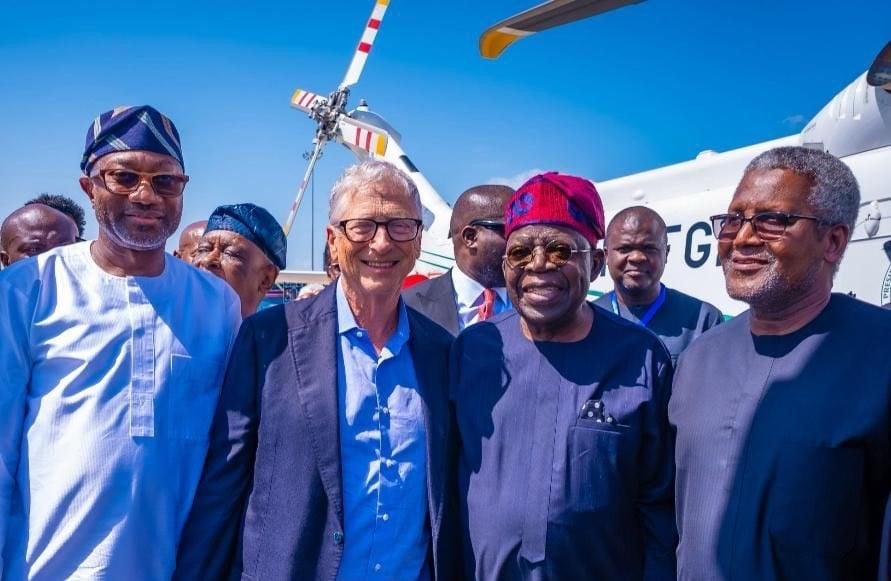Can a book help the left rebuild the good life? Abundance is the talk of Washington - and Canberra
Many observing the economic chaos, cruelty and climate vandalism emanating from United States President Donald Trump are hoping the Democrats can clip his wings at the November 2026 mid-term elections. What does the left need to do differently? Some see the ideas in a bestselling new book as a path back to power.
California governor Gavin Newsom called Abundance “one of the most important books Democrats can read”. Australian politicians are taking note, too. Andrew Leigh, Assistant Minister for both Productivity and Treasury, just proclaimed “the abundance agenda for Australia”. Treasurer Jim Chalmers called the book “a ripper”.
In Abundance, journalists Ezra Klein (New York Times) and Derek Thompson (Atlantic) argue the left “has repeatedly substituted process for outcome”. This results in overregulation that halts genuine progress. Both self-declared liberals, they are speaking to the left, while criticising both “a right that fought the government and a left that hobbled it”.
“We have a startling abundance of the goods that fill a house and a shortage of what’s needed to build a good life,” they write, calling for a “correction”. They conclude “what we can build is more important than what we can buy”.
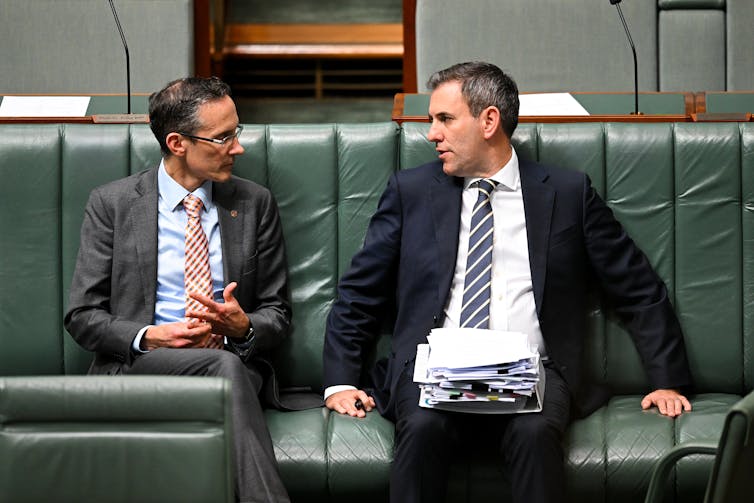
Abundance puts forward various policy ideas, such as fast-tracking projects important to reducing greenhouse gas emissions, and overriding local approval processes to help create affordable housing. But the authors give more attention to “a new set of questions” to guide politics.
What is scarce that should be abundant? What is difficult to build that should be easy? What inventions do we need that we do not yet have?
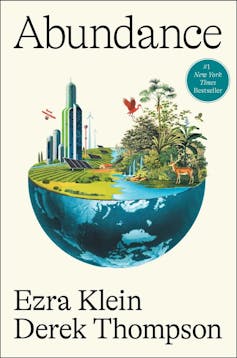
Their focus is on the things we need: housing, transportation, clean energy, health and innovation – and on progressives focusing on how these things are supplied, rather than just allocating money to them. The left has given too much attention to whether the poor can afford things (like housing) and not enough to whether they are supplied, the authors argue.
As Leigh said this week, citing Abundance, a society that wants these things “must also be able to string the wires, build the homes, and support the labs”.
Klein and Thompson believe “abundance is a necessary prerequisite for liberalism at large”. American life has revolved around the promise of being “people of plenty”, they say (borrowing from historian David Potter). But this is no longer the case.
Voters are more likely to be open to policies such as expanded immigration, they argue, if they feel they and their children have an abundance of opportunities in areas such as housing. They are more likely to support climate action if it is framed as providing cheaper renewable energy, rather than raising the costs of fossil fuels or restricting economic activity.
Trump’s 2024 win represented a nationwide shift to the right. But it was largest in Democrat governed states and cities, “where voters were most exposed to the day-to-day realities of liberal governance”. California, which has the worst homelessness and housing affordability problem in the US, is one example. More Americans are leaving the state than moving there.
Australia faces a similar challenge, with many families suffering housing stress. The typical house has gone from costing the average worker around four years’ earnings in the 1960s to 1980s, to over ten years now.
One reason for the lack of housing – in the US and here – is not enough houses are being built. Regulation is named as one culprit and “Nimby-ism” as another: those who want more social and affordable housing, but “not in my back yard”. The authors point out current homeowners have a financial incentive to lobby against more homes being built.
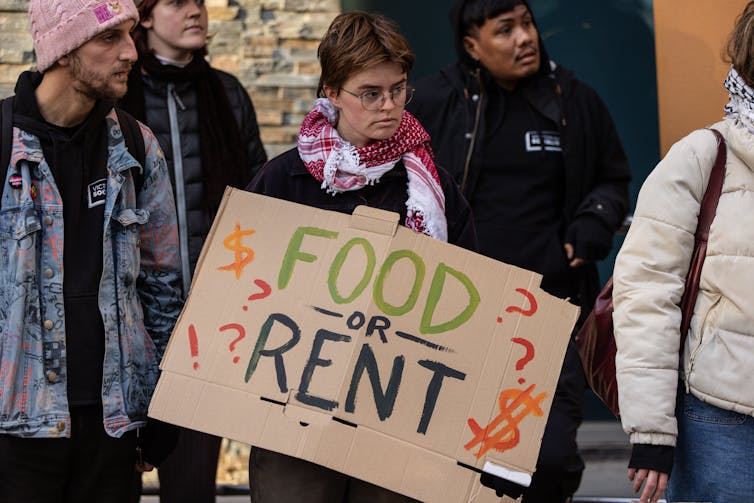
They warn “the problem is that if you subsidise demand for something that is scarce you’ll raise prices or force rationing”. If programs give people on low incomes more money to buy houses, but regulations prevent any increase in the number of houses, this bids up house prices.
In Australia, this problem can arise from the right as well as the left. The policy the Coalition took to the last election of making mortgage interest tax deductible and allowing people to withdraw their superannuation to buy homes would have just driven up house prices.
Setting minimum standards for housing, such as mandatory features or required parking spaces, may also backfire. It may just make even the cheapest housing too expensive for those on very low incomes – and result in the erosion of alternatives, like boarding houses. As the authors ask: does it really protect the poor to “move them from a boarding home without parking spaces to a tent beneath the overpass?”
But the blame is placed less on individuals resisting change and protecting their assets than on the governments who create the conditions for it. “If homelessness is a housing problem, it is also a policy choice – or more accurately, the result of many, many, many small policy choices.”
The book warns an excess of well-intentioned regulations may be preventing good outcomes. “Each individual decision is rational. The collective consequences are maddening.” John Podesta, Bill Clinton’s chief of staff said: “We got so good at stopping projects that we forgot how to build things in America.”
In Leigh’s “abundance agenda” address, he diagnosed a similar problem in Australia: “across housing, infrastructure, energy and research”, we currently lack “the capacity to deliver at the pace and scale that the moment demands”. He acknowledged the need for “systems that protect the public interest without paralysing progress”.
One example in Abundance is California’s failure to build a big infrastructure project – a high-speed rail network – first investigated in 1982 and planned for from 1992. “In the time California spent failing to complete its 500-mile high-speed rail system,” they observe, “China has built more than 23,000 miles of high-speed rail.”
Another is a federal program to boost America’s semiconductor industry, which expected companies to disclose the extent to which their supply chains include minority, veteran and female-owned businesses and their investment in affordable housing and schools.
“There is some margin at which trying to do more means ultimately achieving less,” the authors conclude. One cause, they suggest, may be the excessive influence of lawyers: legal thinking centres on processes rather than results. The US has four times as many lawyers per capita as France.
The authors argue strongly for clean energy as a solution to climate change – and they are optimistic about it. The world installed more solar power in 2023 than it did between 1954 and 2017, they write – and the cost of solar is falling so fast that for much of the day it will be effectively free, in much of the world, by 2030.
The authors are confident economic growth is not inconsistent with addressing climate change. They argue for a combination of supporting scientific research to address it, and being vigilant so regulations do not inadvertently make it harder.
They cite examples of regulations that have done just that – delays caused by obtaining the multiple approvals needed to install a charging network for electric cars, or finding land for and then building wind turbines. Such regulations tend to become more restrictive and more complex over time.
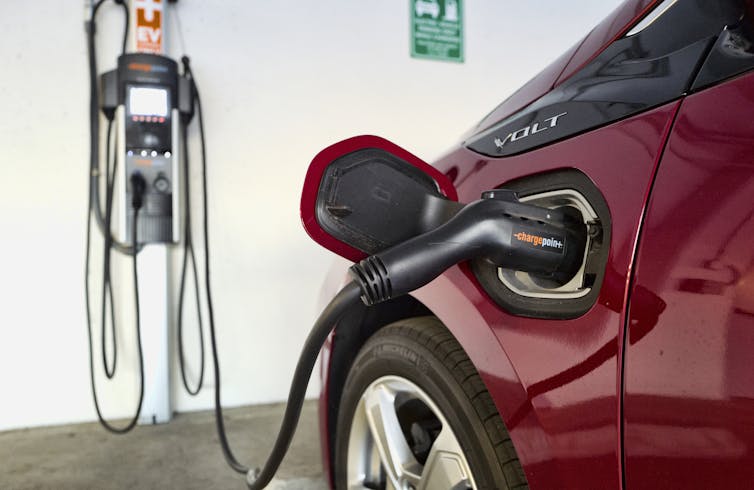
“Energy analysts Sam Calisch and Saul Griffith estimate that in the next few years consumers will need to replace about one billion machines with clean alternatives,” the authors write. “We don’t just need the energy we generate now to be clean. We need much more of it.” AI, too, demands much more energy production. For example, a Google search using AI consumes ten times the power of a standard search.
Procedures are also impeding basic research. “American science has accumulated a set of processes and norms that favour those who know how to play the system, rather than those who have the most interesting ideas,” they write, citing economist Pierre Azoulay.
This “skill” now has a name: “grantsmanship”. Scientists now spend up to 40% of their time filling out grant applications and doing subsequent administration, rather than on direct research.
This all results in a “bias against novelty, risk and edgy thinking”. It makes less likely such serendipitous results as a study of lizard spit (Gila monster venom, to be precise) leading to Ozempic, a treatment for diabetes and obesity.

This week, Leigh diagnosed similar problems at universities in Australia. “Translating discoveries into new technologies, treatments, or policies is harder than it should be – not because the ideas aren’t strong, but because the systems around them are slow, opaque and risk‑averse.”
Klein and Thompson advocate being more scientific about science funding. Government should use randomised control trials to compare the results of different funding approaches, they suggest. Out of this could emerge some idea about the sensible amount of paperwork for – and the best criteria for awarding – grant applications.
Since the book was written, matters have worsened in the US. President Trump has launched a campaign against science, especially climate science and universities.
Most recently, he has tried to expel all Harvard’s international students.
The authors concede their primary audience is the left. They are writing for those who think inequality and climate change are real problems and want more effective ways of dealing with them. The book’s final sentence states their goal: “a liberalism that builds”.
A Democratic congressman from Silicon Valley, former economics lecturer at Stanford, Ro Khanna, endorsed the book as “reimagining government instead of slashing it”. It is a marked contrast to Elon Musk’s DOGE, which confuses cutting international aid for making it more efficient.
I think this is an important book that could have a lasting influence, especially in the US – but more broadly as well. It challenges some of the policies of progressives, but from a perspective that supports their goals. (It helps that it has an index and abundant endnotes giving sources.)
One interpretation of Labor’s smashing win in the 2025 Australian election was that the left here doesn’t face the problems it does in the US.
But Labor cannot assume they will face another inept campaign by the opposition in 2028 or 2031. They should preempt the challenges raised in this book.
In its closing pages, Abundance challenges us:
If you believe in government, you must make it work. To make it work, you must be clear-eyed about when it fails and why it fails.










